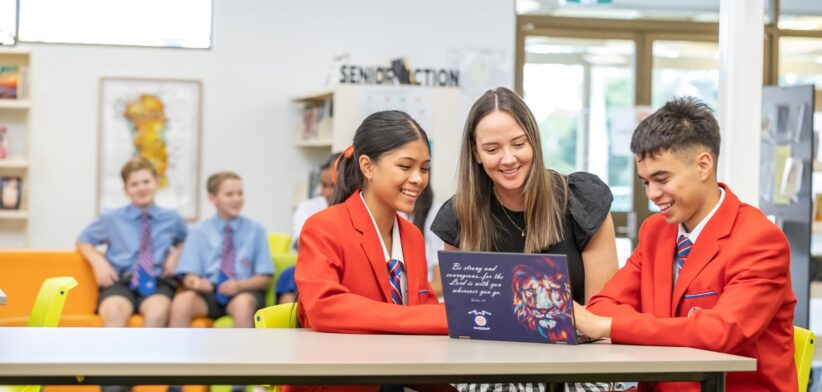Brisbane Catholic Education (BCE) is the first education provider in the world to embrace a global call to ethically embed Artificial Intelligence (AI) and is trialling the technology in a number of its schools across South-East Queensland.
The recent Rome Call on AI Ethics was issued by the Vatican to promote the ethical development of AI through collaborating with major tech companies.
BCE Information and Technology Executive Leigh Williams said the group was the first Australian organisation to join the Rome Call on AI Ethics, which gave schools the reassurance needed to fully embrace what the cutting-edge technology had to offer.
Ms Williams said programs like Microsoft’s Copilot had the potential to reduce teacher workload and assisting students with assignment feedback, among other benefits.
“Brisbane Catholic Education is leading the way with its early adoption of game-changing generative AI technologies in education,” she said.
“By partnering with Microsoft to analyse the impact of AI in education, BCE is revolutionising teaching and learning with ethical principles at its core.
“We are proud to be the first K-12 education organisation in the world to partner with Microsoft and the Vatican as ambassadors for their Rome Call for AI Ethics.”
Ms Williams said before embarking on a body of work like AI, BCE needed a set of ethical principles to focus and shape the design and structure of solutions and platforms.
“We identified early on that this trend would not disappear, and we knew that we wanted to lead in this space, but to get where we are now, we had to lay a lot of foundational work first focused on data analytics and cyber security,” she said.
“Because of this relentless focus on data and cyber, we have been able to move forward with Copilot and similar technologies safely and securely.”
Ms Williams said results of the trial to date have shown a significant reduction of more than nine hours a week in administrative tasks for teachers, enhanced student literacy and numeracy skills, and improved student and staff wellbeing.
“Copilot and other Microsoft programs such as Reading Coach are tools that directly serve our students and assist teachers with real time data that allows them to make informed, personalised decisions for the benefit of each individual child.
“It’s about increasing student engagement, workload reduction for teachers, and the ability to hyper-personalise teaching and learning.”
St Francis College Crestmead Principal John Marinucci said AI integration in schools would transform education by automating administrative tasks, improve student learning and wellbeing, and allow teachers to focus on engagement and deeper learning experiences.
“Students will benefit from personalised learning, making education more impactful and effective,” Mr Marinucci said.
“With AI’s continuous advancement, we can expect a dynamic learning environment that prepares students for future challenges.”
Trinity College Beenleigh Principal Allison Elcoate said they were just starting to uncover the vast potential of AI in their classrooms, however, so far, the results have been “remarkable”.
“Copilot is creating new opportunities for deeper learning experiences by guiding students to independently seek answers, providing immediate and precise feedback, and offering avenues to explore and challenge themselves beyond traditional capabilities,” Ms Elcoate said.
“Meanwhile, teachers play a crucial role in this dynamic landscape, leveraging AI to enhance their instructional strategies to personalise learning, and focus more on mentoring and supporting students’ individual growth.”








